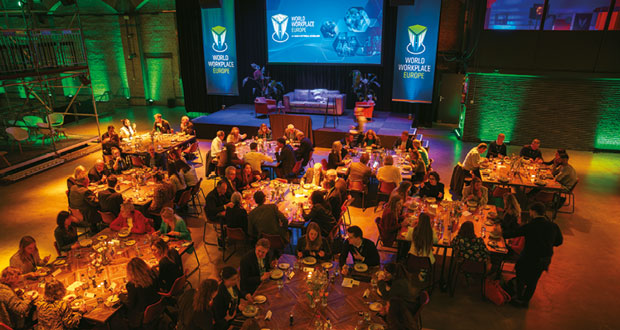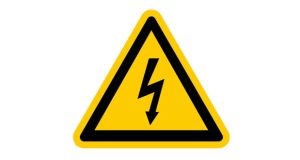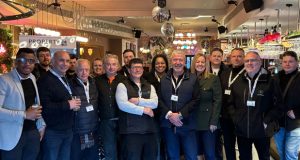IFMA’s World Workplace Europe explored the theme of creating balance and unity between diverse, dispersed, and increasingly disrupted relationships. Jo Sutherland, MD, Magenta Associates reports
In the bustling atmosphere of Schiecentrale, a former power plant and national monument in Rotterdam, discussions explored the evolving relationship between technology and humanity. From Geertrui Mieke De Ketelaere’s insights into the ethical considerations of AI applications to Mark T. Hofmann’s examination of the psychology behind cybercrime, delegates gained a deeper understanding of the delicate balance required to harness the benefits of tech while mitigating the potential risks.
The event delved into AI’s evolving role in the workplace and workforce, including its potential to relieve employees of repetitive and mundane tasks, while raising moral dilemmas in using AI, which is inherently biased, to support decision-making. Despite AI’s capabilities, it lacks common sense and struggles with abstraction. And there’s no fix for that, so there will always be room for humans. Phew.
But there are other, much bigger question marks to consider around fair use. While ChatGPT version 4 can analyse the contents of one’s fridge to suggest recipes, other forms of generative AI have been known to quarrel about the origin of French fries. As it stands, AI lacks a universal language and is steered by biases. Not so long ago, one could ask the platform how to bomb Iraq, said De Ketelaere. The platform would oblige, giving the researcher a to-do list to support their quest. Ask it how to do the same in Ukraine, and the platform issues a warning, saying that is not a moral or appropriate question to ask.
Ethical considerations aside, technical challenges, such as the crazy volume of CO2 emissions, were also addressed. For every question asked of AI, for example, whether that’s a ‘Hey Google’ or ‘Alexa’ command, 11-13 grams of CO2 is emitted. 10ml of water is required to cool down the servers every time someone asks ChatGPT a question. That’s 383,250,000,0000 litres a year to support 105b queries. Thirsty work. Not necessarily the solution to the world’s ills that may have been assumed.
GEN Z V. EVERYONE
From one alien concept to another. The intergenerational dialogue sparked by Esmee van den Heuvel and Floor Butzelaar, both self-aware, charming, and energetic Generation Zedders, shed light on the aspirations and values of their generation in the context of the assumptions made by those of the baby boomers and millennials before them. The pair highlighted that Generation Zs tends to embody the paradox of being both addicted to and seeking to disconnect from the internet due to its stress-inducing nature. Another paradox inherent to this generation is a longing to be unique but labelled. “We want labels, but we want to choose our labels,” the pair said in response to their admittance that the ‘new’ generation entering the world of work has grown up with lots of uncertainty.
The double act touched on Gen Z’s expectations in the workplace. They advocate for a shift in workplace norms to accommodate longer working lives, recognising the need for breaks and sabbaticals to prevent burnout, given they’ll probably be working until they’re 70 or 80.
“We are a generation with a lot of opinions, and we also think everyone should think the same way as us. We want to work for organisations with a strong moral compass to help dispel our climate anxiety.”
And who can blame them?
CLIENT V. SUPPLIER
Continuing the theme of things we don’t understand that scare us, on to tenders…
Developing strong value-based FM partnerships is perhaps not always possible given the current approach to tenders, which can too easily become a race to the bottom, especially given the volatile economy.
Johnson & Johnson’s Erik Gijsbers and Sodexo’s Annemiek Freijser’s exploration of the ‘Vested’ contract model showcased the transformative power of collaborative partnerships rooted in trust, integrity, and shared vision. Vested models, like the one between J&J and Sodexo, emphasise core values such as autonomy, reciprocity, equity, attention, loyalty, and honesty. Unlike traditional transaction-focused approaches, Vested contracts prioritise outcomes over transactions, with flexible statements of work replacing detailed service-level agreements.
This way of doing business fosters collaboration with suppliers, aiming to work together rather than applying pressure or barking demands. Ultimately, successful partnerships are contingent upon having the right conversations with the right people at the right level. So, it shouldn’t be client vs supplier, it should be a one-team approach, based on the guiding principles of a ‘win-win’ relationship.
IN SUMMARY
IFMA World Workplace Europe served as a catalyst for meaningful dialogue and collaboration, challenging participants to embrace diversity, foster unity, and strive for balance in an ever-evolving landscape. By leveraging technology responsibly, nurturing intergenerational harmony, cultivating strong partnerships, and prioritising mental health and wellbeing, stakeholders can pave the way for a more harmonious and resilient future.





